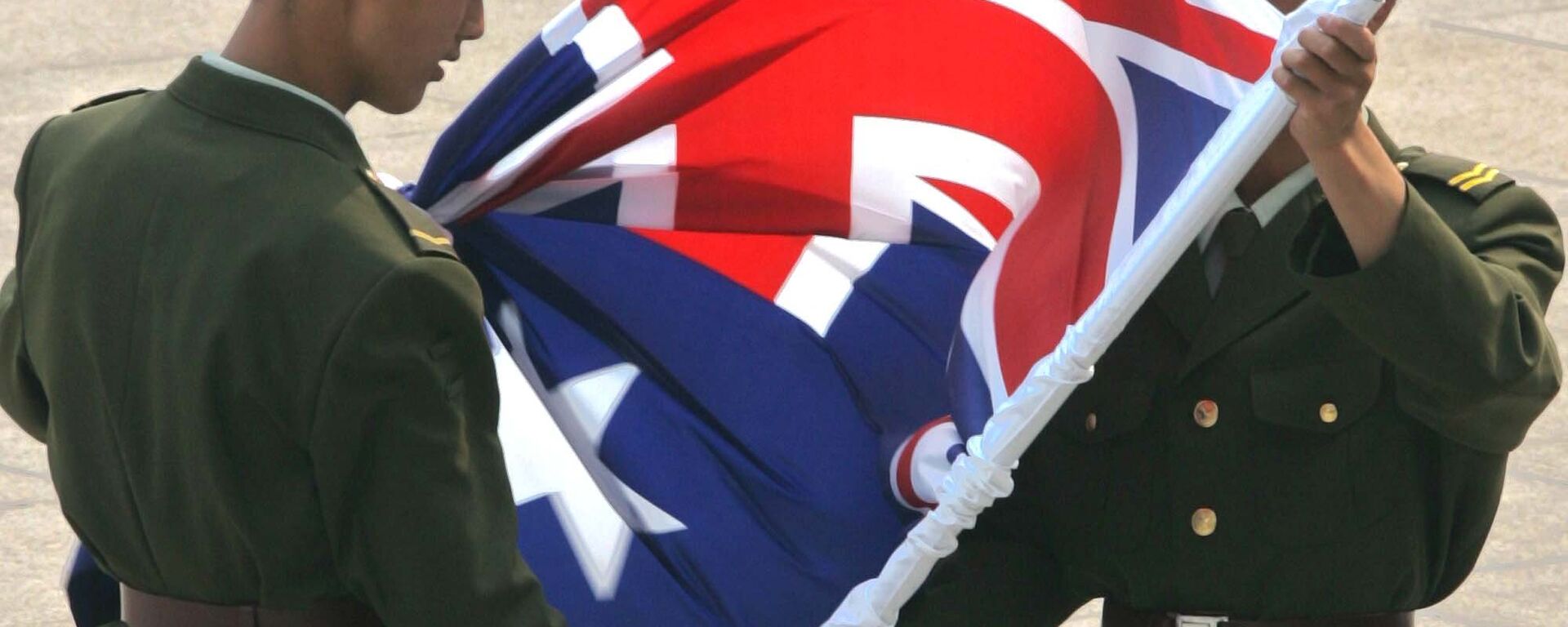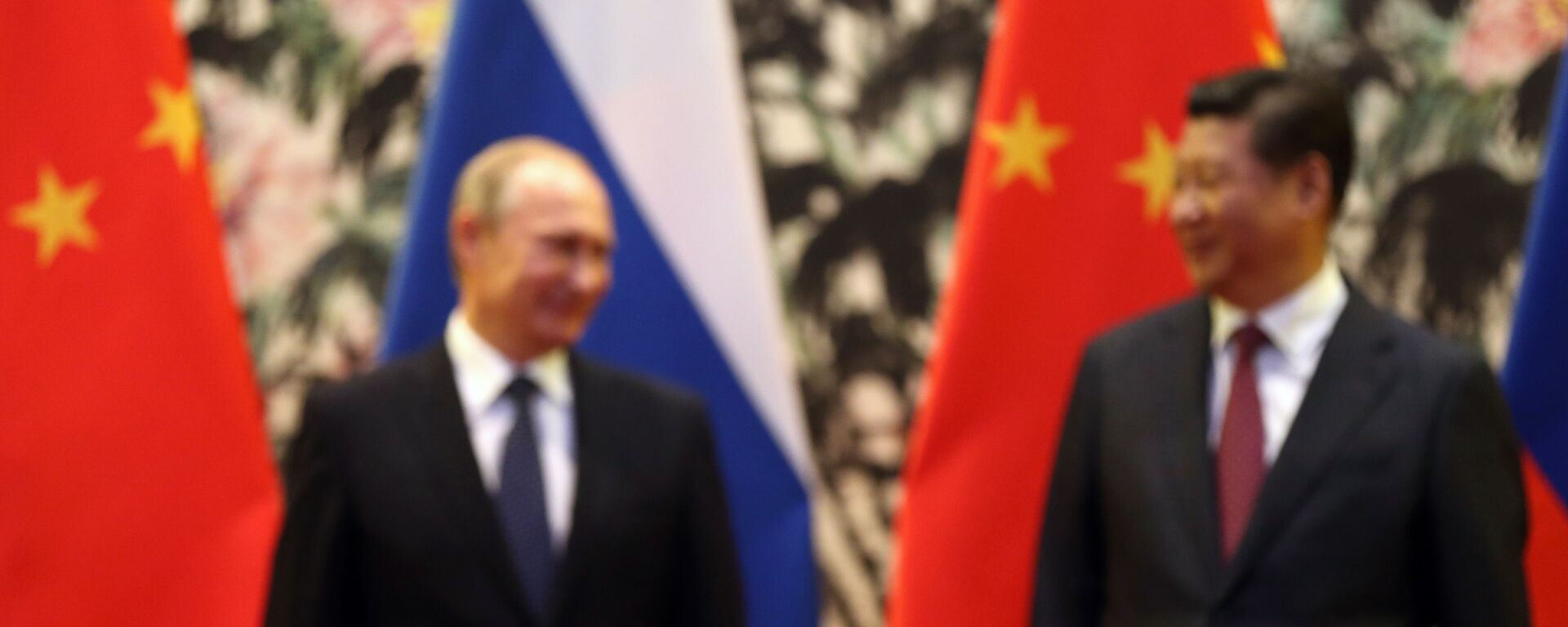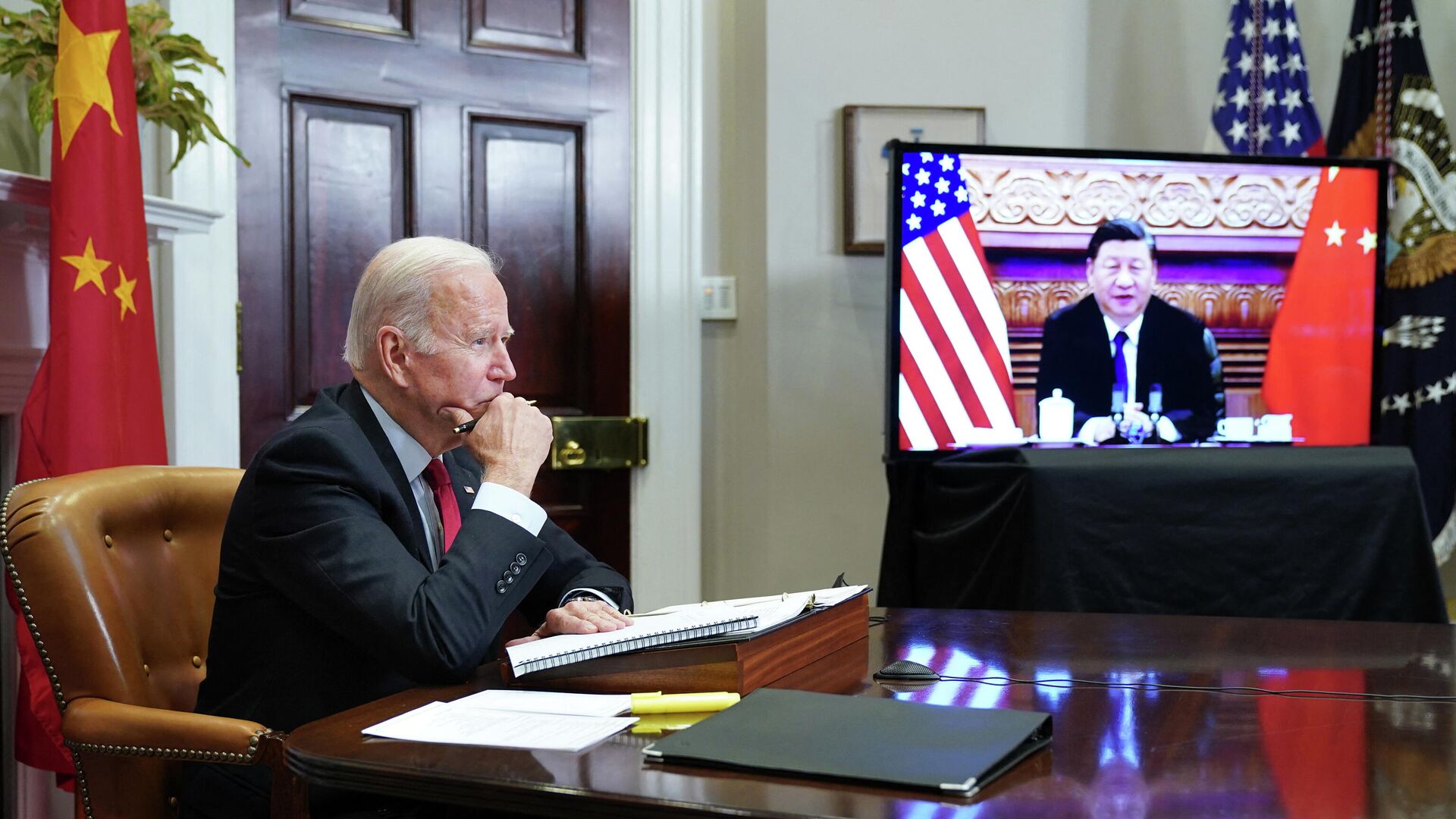https://sputnikglobe.com/20220913/us-considering-sanctions-package-against-china-pressuring-eu-to-join---reports-1100741249.html
US Considering Sanctions Package Against China, Pressuring EU to Join - Reports
US Considering Sanctions Package Against China, Pressuring EU to Join - Reports
Sputnik International
Relations between Taipei and Beijing have been deteriorating since US Speaker of the House Nancy Pelosi spoke with Taiwanese officials in August. 13.09.2022, Sputnik International
2022-09-13T22:03+0000
2022-09-13T22:03+0000
2023-06-19T12:45+0000
world
us
us-china relations
china
european union (eu)
taiwan
https://cdn1.img.sputnikglobe.com/img/07e5/0b/11/1090799736_0:0:3071:1728_1920x0_80_0_0_1f0c8f7141fbe0810f50ccc5995adc45.jpg
The United States is considering a sanctions package to discourage China from invading Taiwan, and both Taipei and Washington are pressuring the European Union to follow suit, according to a report published by Reuters on Tuesday.Deliberations between Washington and the EU, along with separate lobbying of the EU by Taipei, are said to be in the early stages.The proposed sanctions are in response to increased tensions in the area, which were partially brought on by the US Speaker of the House Nancy Pelosi’s trip to Taipei, which Beijing publicly condemned and saw as a provocation.The US and much of the West already restricts trade of certain computer components and telecom equipment from China over corporate espionage fears. The Biden administration also recently restricted sales of artificial intelligence chips to Chinese companies, unless those companies receive Commerce Department licenses first.The new sanctions package would be in addition to those sanctions. Reuter’s source did not provide them with any additional details.Last month, China fired missiles over Taiwan and sailed warships near the island in response to Pelosi’s trip to Taipei.Reunifying Taiwan with mainland China has long been a goal of the Chinese government, something that Chinese President Xi Jinping has reiterated his commitment to. The US government has officially supported reunification in its “one-China” policy, though Washington stresses that it should come through peaceful means. Xi has not ruled out the possibility of taking the island by force.Washington is taking a similar approach as it did with Russia before Russia’s special military operation in Ukraine, hoping that a sanctions package will discourage China from sending troops into Taiwan. That strategy, however, did not have the stated intended effect of discouraging Russia from using military force in Ukraine.The White House has declined to comment on any potential sanctions package against China, but according to an official of a country Reuters says is “in close coordination with Washington,” the US is quietly attempting to get European and Asian countries on board with a sanctions plan while avoiding provoking Beijing.Meanwhile, Taiwan’s foreign ministry said it has spoken with the US, Europe, and other partners about China’s wargames in the region, but declined to discuss details.Taipei has been calling for sanctions against mainland China since early in the year but has doubled down in the wake of China's wargames in the region. Another concern is a Chinese government white paper that did not include a previous promise to not send in troops or administrators if Beijing took control of Taiwan.The EU has been hesitant to impose sanctions against China, including for alleged human rights violations, because the region is more entangled economically with China than it was with Russia. Any sanctions coming from the EU would require all 27 member nations to agree to sanction China, which is difficult to obtain.When sanctions with Russia were being considered, Germany was a major hurdle because of that country’s dependence on Russian gas. Surging gas prices in Germany and the rest of the EU have taken a toll on the continent’s economy and many regions are facing energy rationing this winter if the situation does not improve.Germany, which is often called the economic engine of the EU, is said to be wary of imposing sanctions on China, whom it depends on for raw materials, batteries, and semiconductors. However, on Tuesday the country’s economic minister said that the government is working on a new trade policy with China to reduce that dependence.
https://sputnikglobe.com/20220913/provoking-china-is-dangerous-for-australia-as-us-proxy-former-australian-official-1100719270.html
https://sputnikglobe.com/20220913/western-sanctions-are-creating-new-east-tilting-russia-1100712566.html
china
taiwan
Sputnik International
feedback@sputniknews.com
+74956456601
MIA „Rosiya Segodnya“
2022
News
en_EN
Sputnik International
feedback@sputniknews.com
+74956456601
MIA „Rosiya Segodnya“
Sputnik International
feedback@sputniknews.com
+74956456601
MIA „Rosiya Segodnya“
us, us-china relations, china, european union (eu), taiwan
us, us-china relations, china, european union (eu), taiwan
US Considering Sanctions Package Against China, Pressuring EU to Join - Reports
22:03 GMT 13.09.2022 (Updated: 12:45 GMT 19.06.2023) Relations between Taipei and Beijing have been deteriorating since US Speaker of the House Nancy Pelosi spoke with Taiwanese officials in August.
The United States is considering a sanctions package to discourage China from invading Taiwan, and both Taipei and Washington are pressuring the European Union to follow suit, according to a
report published by Reuters on Tuesday.
Deliberations between Washington and the EU, along with separate lobbying of the EU by Taipei, are said to be in the early stages.
The proposed sanctions are in response to increased tensions in the area, which were partially brought on by the US Speaker of the House Nancy Pelosi’s trip to Taipei, which
Beijing publicly condemned and saw as a provocation.
The US and much of the West already restricts trade of certain computer components and telecom equipment from China over corporate espionage fears. The Biden administration also recently restricted sales of artificial intelligence chips to Chinese companies, unless those companies receive Commerce Department licenses first.
The new sanctions package would be in addition to those sanctions. Reuter’s source did not provide them with any additional details.

13 September 2022, 11:27 GMT
Last month, China fired missiles over Taiwan and sailed warships near the island in response to Pelosi’s trip to Taipei.
Reunifying Taiwan with mainland China has long been a goal of the Chinese government, something that Chinese President Xi Jinping has reiterated his commitment to. The US government has officially supported reunification in its “one-China” policy, though Washington stresses that it should come through peaceful means. Xi has not ruled out the possibility of taking the island by force.
Washington is taking a similar approach as it did with Russia before Russia’s special military operation in Ukraine, hoping that a sanctions package will discourage China from sending troops into Taiwan. That strategy, however, did not have the stated intended effect of discouraging Russia from using military force in Ukraine.
The White House has declined to comment on any potential sanctions package against China, but according to an official of a country Reuters says is “in close coordination with Washington,” the US is quietly attempting to get European and Asian countries on board with a sanctions plan while avoiding provoking Beijing.
Meanwhile, Taiwan’s foreign ministry said it has spoken with the US, Europe, and other partners about China’s wargames in the region, but declined to discuss details.

13 September 2022, 09:15 GMT
Taipei has been calling for sanctions against mainland China since early in the year but has doubled down in the wake of China's wargames in the region. Another concern is a Chinese government white paper that did not include a previous promise to not send in troops or administrators if Beijing took control of Taiwan.
The EU has been hesitant to impose sanctions against China, including for alleged human rights violations, because the region is more entangled economically with China than it was with Russia. Any sanctions coming from the EU would require all 27 member nations to agree to sanction China, which is difficult to obtain.
When sanctions with Russia were being considered, Germany was a major hurdle because of that country’s dependence on Russian gas. Surging gas prices in Germany and the rest of the EU have taken a toll on the continent’s economy and many regions are facing energy rationing this winter if the situation does not improve. Germany, which is often called the economic engine of the EU, is said to be wary of imposing sanctions on China, whom it depends on for raw materials, batteries, and semiconductors. However, on Tuesday the country’s economic minister said that the government is working on a
new trade policy with China to reduce that dependence.






